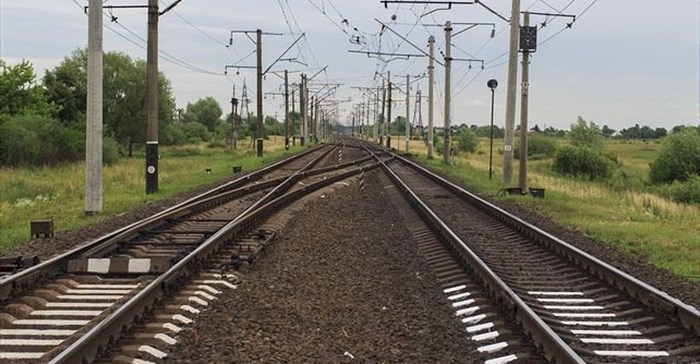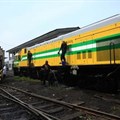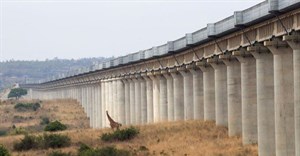National Railways of Zimbabwe emerges from the doldrums

NRZ is now steaming ahead powered by the Diaspora Infrastructure Development Group (DIDG)-Transnet, a business consortium which won the $400 million recapitalisation tender to revive the local state-owned rail operator.
DIDG executive director Donovan Chimhandamba told the Zimbabwe Independent that the NRZ recapitalisation project has been effective and should gather steam during the second half of the year as legal negotiations are expected to end this month, while real work on the project will commence next month.
"The NRZ recapitalisation deal is going according to plan and the legal negotiations are expected to end by June, this month, while other works on the project will commence in July which is next month," said Chimhandamba.
At its peak, NRZ employed nearly 20,000 workers and moved 18 million tonnes of freight annually. Just before DIDG moved in, it was moving less than 100,000 tonnes per week as the economy floundered, while rail infrastructure collapsed. Now it is said to have recovered by 30% in capacity utilisation before real work begins.When the DIDG project is completed, NRZ is expected to move forward fast and full-scale, enabling economic recovery and growth. Rail freight is about 40% cheaper relative to road transport.
The NRZ deal entails bringing in 34 new locomotives; with 28 refurbished locos, procurement of 200 new wagons and refurbishment of 768 wagons.
"The process of manufacturing and supplying new locomotives takes 18-24 months," Chimhandamba said.
NRZ was facing near-collapse when the interim solution was provided to bring in 14 locos, 200 wagons, and 34 passenger coaches.
"The DIDG/Transnet consortium has delivered 10 locomotives; six of them are the class 34Ds that NRZ is used to and are already deployed to move chrome and coal for Zimasco and Hwange," a senior NRZ official said.
"The other four are the latest models called class 43Ds which NRZ is not familiar with. These four are more suitable for the mainline and heavy haul, and not for branch line or shunting activities. The idea is to run these only on the busy corridors for specific high volume cargo. The only reason why these are still parked is that NRZ operators are undergoing driver training, while we also await insurance approval as these are fairly expensive and recently acquired locos. They will need a more comprehensive insurance cover as damage to one of these has serious financial implications. In terms of wagons, DIDG/Transnet has already delivered the full consignment of 200 wagons."
Negotiations with the South African government and Transnet
The official said since NRZ is not creditworthy, DIDG had to negotiate with the South African government and Transnet to waive creditworthiness requirements for it.
"In 2016/17, NRZ moved 2,7 million tonnes (compared to Transnet's 220 million tonnes). After DIDG delivered the interim solution to NRZ, we achieved the following in three months:
"We moved already 771,000 tonnes and the real impact will be felt in the second quarter as most of the wagons and locos became available from 29 March 2018 after Zimra approvals. Also, Zimasco had challenges with the ports and it was not until mid-April that they could effectively start using the rolling stock.
"The other issue is that our lease payment terms afford us to defer some payments to the consortium once fully operational. Thus to date we have not paid a cent to DIDG or Transnet. So it's a good deal for us.
"NRZ had employees who were 13 months behind on salaries. In December 2017, we were paying them at a rate of 50-60% of full salary. Now with the interventions, including interim solution, we are now paying 80-90% of full salaries. This is even before DIDG-Transnet fully hits the ground.
"So it's clear without the interim solution, NRZ employees and customers would in deeper trouble."
The official said while NRZ has some operational challenges, the situation has markedly improved.
"It is true that we have had some operational challenges which are expected in the ordinary course of business of operating such equipment, but the situation has vastly improved and we are now waiting for negotiations to end and for real work to begin. After that, things will move faster and there would be a major improvement."
Binga South MP Gabbuza Joel Gabbuza has said NRZ's problems are intertwined with those of Ziscosteel, Hwange and Zesa. Government assumed Zisco's $494,8 million debt this week as part of plans to revive the company.
"If you sort out Zisco you have solved half the problems of Hwange Colliery because Hwange used to supply almost 50 wagons of coking coal every day to Zisco. If you sorted out Zisco, you have sorted out NRZ because those wagons were providing a lot of revenue to the railways. Zesa is going to benefit because that Munyati Power Station was constructed specifically to supply power to Zisco. Studies have shown that the current blast furnaces that are used, if we sorted out Zisco, we can still harness thermal energy from the heat at the top of the furnaces at Zisco, so that will partly address some of our power problems."
Read the original article on Zimbabwe Independent.
Source: allAfrica

AllAfrica is a voice of, by and about Africa - aggregating, producing and distributing 2000 news and information items daily from over 130 African news organisations and our own reporters to an African and global public. We operate from Cape Town, Dakar, Lagos, Monrovia, Nairobi and Washington DC.
Go to: http://allafrica.com/Related
Investing in the Lobito Corridor: Focus on ESG-related disputes 14 Apr 2025 Minister Creecy sets out logistics, rail investment plans 3 Mar 2025 From crisis to renewal: How private investment can turn South Africa’s freight challenges around 17 Feb 2025 China Development Bank releases $255m for Nigeria rail project 9 Jan 2025 SA can learn from top trends in the global rail industry 21 Nov 2024 New railway framework addresses heavy haul sector challenges 17 Sep 2024

























